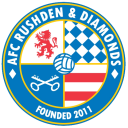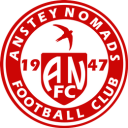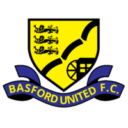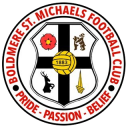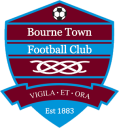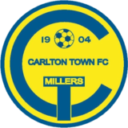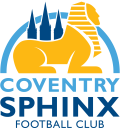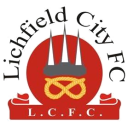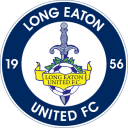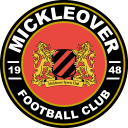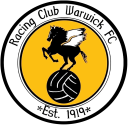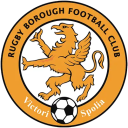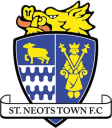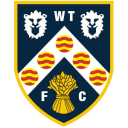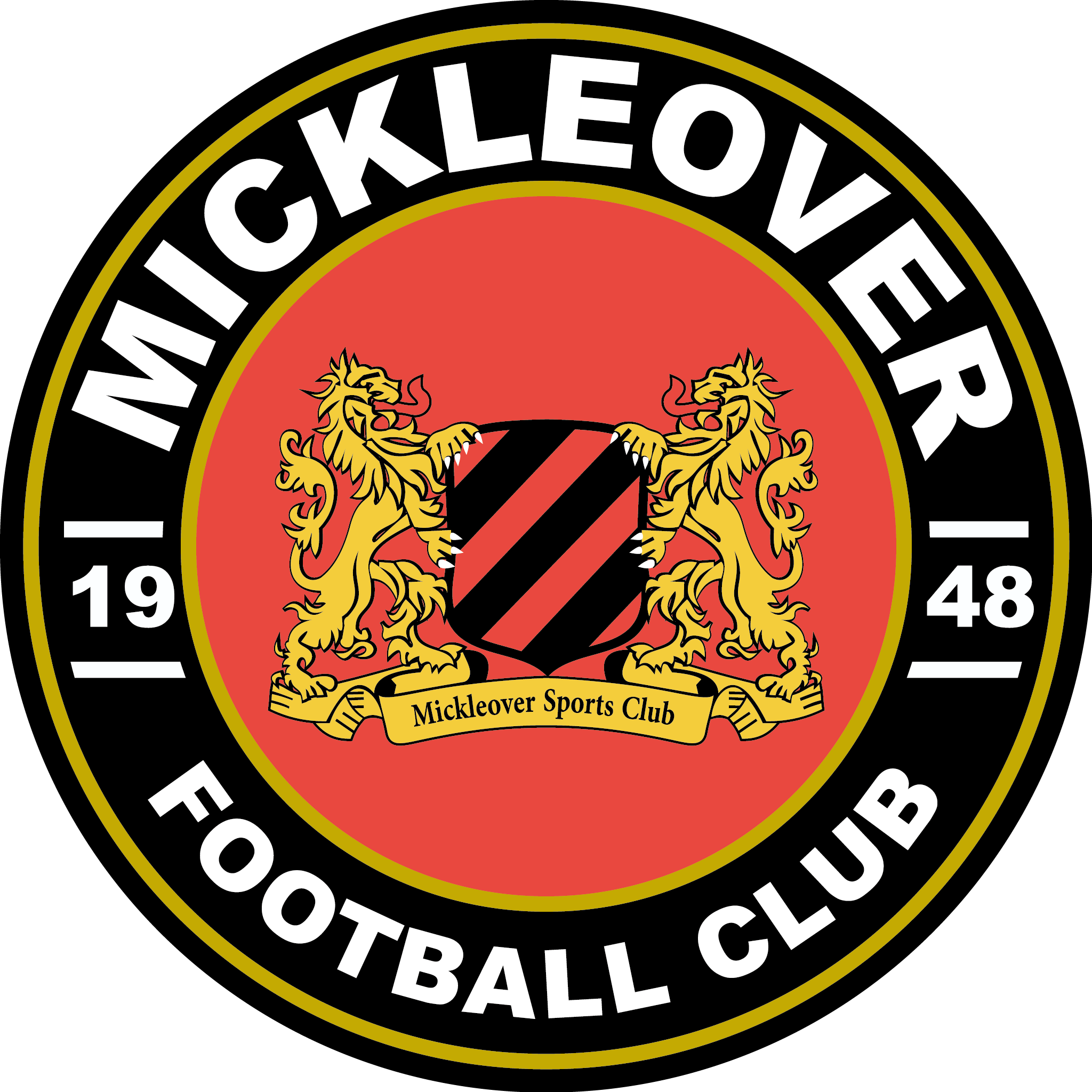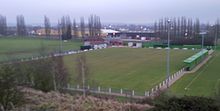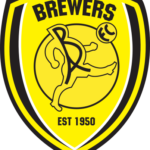
Season: 2016/17
2017

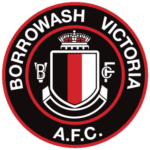
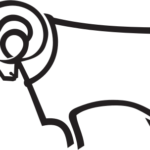
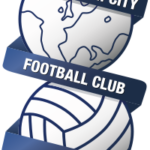
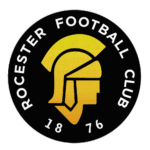
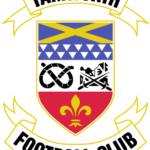
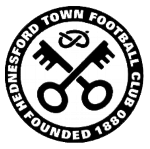
Hednesford Town
The club was formed in 1880 by the merger of two leading Hednesford clubs, the Red & Whites and Hill Top, and after many years in local competitions joined the Southern League in 1984.
2010–11 season
The middle of 2010 saw a complete change in the playing department with both of the lethal strikeforce that turned the previous season moving on to higher levels. Macclesfield Town snapped up Tyrone Barnett while Ross Dyer signed for Forest Green Rovers, joining up with another ex-Pitman in Reece Styche.
After a mixed start to the 2010–11 season that found the Pitmen again having much greater away form than at home, on Sunday 19 September 2010 the club announced it had “parted company” with manager Bernard McNally and a successor was being sought. That replacement would turn out to be Rob Smith and he was announced as manager of the club on Monday 27 September 2010 with Larry Chambers as his assistant, the duo having previously earned league promotion success with AFC Telford United.
This appointment triggered an upturn in the team’s on field success with the Pitmen forcing themselves into the promotion race with a run of form breaking a number of club records including:
- A goalscoring run of 32 league games (5 October 2010 to 2 May 2011)[1]
- A winning run of 9 (19 February 2011 to 26 March 2011)[2]
- Highest ever league victory with a 9–0 home win over Weymouth[3](23 October 2010).
The post-Christmas league form continued in the cup competitions with the club winning the Southern League Cup beating Hemel Hempstead Town over 2 legs, 5–1 on aggregate. The team followed up the cup success by qualifying for the playoffs after finishing the league season in 2nd position behind champions Truro City. This gave the Pitmen home advantage in the semi-final against Leamington, a game they won 3–1 to progress to the playoff final (again at Keys Park) against 3rd-place finishers Salisbury City. However, the season was to end with heartbreak for the Pitmen, after a 1–1 draw in the 90 mins and Danny Quinn putting them back into the lead, Salisbury equalised with the last kick of extra time before winning the game on penalties.
2011–12 season
Hednesford were transferred to the Northern Premier League Premier Division for this season, seeing a number of local derbies return to the fixture list. A consistent start to campaign saw the Pitmen sitting in the top four for the majority of the season, with a number of memorable game to look back on: a 5–4 win over local rivals Stafford Rangers, a remarkable 6–5 win over a strong Walsall side and a 2–1 win at league leaders Chester.
The Pitmen’s strong home form deserted them from December however, failing to win again at home for the remainder of the season. Hednesford finished the league in 5th position, but nominally in 4th due to Northwich Victoria’s expulsion from both the playoffs and league itself. Hednesford were beaten at Bradford Park Avenue 5–0 in the playoff semi-final on 28 April.
2012–13 season
Hednesford were promoted from the Northern Premier League to the Conference North during the 2012–2013. During this season they also won the Staffordshire Senior Cup and the Birmingham Senior Cup. The summer of 2012 saw a rebuild at Keys Park, with a number of the squad that had been together for the previous two campaigns being moved on. Linchpins in Chey Dunkley and Chris Clements saw their talents rewarded with moves up to the top-tier of non-league football (Kidderminster Harriers and Mansfield Town respectively). This triggered a near complete overhaul of the playing squad with 5 players that ended the 2011–12 season remaining at the club at the start of the new campaign.
Despite this the Pitmen started the season brightly, with an 8-game unbeaten run that was ultimately ended in some style in a 4–0 defeat to Worksop Town at Keys Park.
The Pitmen eventually had to settle for a second-placed finish and playoff berth, narrowly missing out on automatic promotion on goal difference to North Ferriby Utd. In the semi-final of the playoffs, they were drawn against AFC Fylde, a team they beat 2–1 on the final day of the regular season. After 6 goals and 120 minutes, the game went to penalties, with Hednesford prevailing 3–1. In the final, they faced F.C. United of Manchester, a team that were playing in their 3rd successive playoff final and are rivals of the Pitmen. Hednesford were victorious 2–1, in front of a record crowd of 4,412 at Keys Park, ensuring that the Pitmen will play their football in the Conference North in 2013–14.
2013–14 season
Hednesford finished fourth in the conference north and qualified for the play-offs where they faced Altrincham fc in a 2 legged semi-final. The first leg at Keys park finished 2–2 but Hednesford lost the second leg 2–1 away. Hednesford also reach the FA Cup 1st round proper where they were beaten 2–1 by league one side Crawley Town at Keys park.
2014-15 season
On 3rd March 2015 Hednesford beat AFC Fylde 2-0 at Keys park and looked likely to finish in a play-off position. However just 2 points from the final eight games saw the pitmen finish the season in a disappointing 8th place.
2015-16 season
Hednesford suffered a set back early on in the season when manager Rob Smith and his assistant Larry Chambers left the club to return to AFC Telford United. Chris Brindley took temporary charge until the club appointed former manager Bernard McNally. However McNally’s second spell at the club was short lived and he was later sacked after just one league victory. The next manager to be appointed was former Chelsea and Leicester player Frank Sinclair. After a 3-0 defeat at Stockport County in early March Sinclair offered his resignation which was accepted by the club only for him to be reinstated as manager two days later. Sinclair left club again in April after a 1-0 home defeat to Worcester and relegation looking inevitable. Despite a 2-1 away win at league champions Solihull Moors relegation was confirmed with 2 games remaining.
2016-17 season
Hednesford will play in the Evo-Stick Northern League Premier Division in the 2016-2017 season. Liam McDonald was announced as the club’s new manager on 9 May 2016, having left Redditch United FC.
Credit: Wikipedia.com
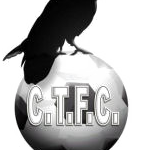
Coalville Town
Coalville Town Football Club were formed in 1926 as Ravenstone Miners Athletic, the latest in a long line of association football clubs from the village of Ravenstone. Nicknamed the Ravens, they played for many years in the Coalville & District Amateur League, and later the North Leicestershire League, where they won numerous honours. In 1991 this led to election to the Leicestershire Senior League Division One, following the construction of a new club house at their Ravenslea home. Following the local council’s refusal to grant permission for floodlights, the club took the decision to relocate to Coalville. A change of name followed to Coalville F.C., with the club becoming the first senior side in the town of Coalville since the demise of Coalville Town Amateurs in 1954.
In their second season in the Senior League the club clinched the runner-up spot and with it promotion to the Premier Division. In 2001 new manager Lee Harriman arrived and immediately led the club to the league title, a feat they repeated the following year which saw them promoted into the Midland Alliance for the 2003–04 season. In the 2004–05 season, the club entered the FA Cup for the first time ever and reached the first round proper where they narrowly lost to league side Wycombe Wanderers.[1] This feat was even more impressive given that the team had started their campaign in the extra preliminary round, making them only the second club in the entire history of the Cup to reach the first round proper from the very first stage[citation needed].
It was announced on 30 October 2006 that the club’s most successful manager, Lee Harriman, had stepped down as manager and been replaced on a temporary basis by coach Bob Stockley. On 20 November 2006, it was announced that Brendan Phillips (formerly of Nuneaton Borough, Bedworth United, Stafford Rangers and Halesowen Town) was to take over first team affairs. Phillips kept Coalville in the Alliance, but was sacked and replaced by former Coalville player Adam Stevens.
In 2010–11 Coalville reached the FA Vase final becoming the first Leicestershire team to ever achieve a place in the final. Having played in front of a capacity crowd of 1800 in the first leg and securing a 3–0 advantage over King’s Lynn, the Ravens then went on to become the first team this season to win at King’s Lynn taking the second leg 3–2 at the Walks stadium in front of 2354 fans. However, the final, 8 May 2011, ended in a 3–2 defeat to Whitley Bay in front of 8778 at Wembley. The victory secured a record third successive FA Vase title for Whitley Bay.
The week before the trip to Wembley the Ravens sealed the Midland Alliance title for the first time on goal difference from Tipton Town, both teams having finished the season on 100 points. Coalville had a goal difference of +100, superior to Tipton’s GD of +69.
The 2012–13 season saw Coalville win the Westerby Cup for the first, and to date, only time in the club’s history. The run to the cup involved 18 goals and ended with a 2–1 win against Loughborough Dynamo in the final, played at Leicester City‘s Walkers Stadium.
At the start of the 2014–15 season, Adam Stevens took the decision to stand down as manager after eight years in the job.[2] Two weeks later, Jimmy Gray was confirmed manager in his place.[3]
In 2015-16 Coalville secured promotion to the Northern Premier League Premier Division under the management of Tommy Brookbanks after they defeated Shaw Lane Aquaforce 3-1 in the play off final.
Credit: Wikipedia.com
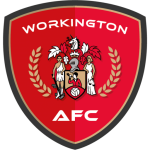
Workington A.F.C
Football in Workington has a very long history.[4] Close by and adjacent to the home of Workington A.F.C the folk game of “Uppies and Downies” is still an annual event. There are records about the game from 20 April 1775 in the “Cumbrian Pacquet” which is one of the earliest reports of a football match ever. This report says the match on which it is reporting is “long contended” thereby noting an even longer unwritten history of the game in this Cumbrian Town.[5]
Formation of the club
Association football was introduced to Workington in the 1860s and further popularised when a group for steel workers migrated to the town from Dronfield, Derbyshire. They were workers of the Charles Cammel and Co steel works that arrived in the town in 1884. It is estimated that 1,500 townspeople moved to Workington. ‘Dronnies’, as the people of Workington called the newcomers, formed Workington AFC in 1888.[6] This is also confirmed in a short history of the club which was produced as part of 16 page brochure in the club’s application to the Football League in 1951.[7]
The original Workington A.F.C. were one of the founder members of the Cumberland Association League in 1888 and played at Lonsdale Park. In 1894 they moved to the Cumberland Senior League, and in 1901 joined the Lancashire League. However, the league closed two seasons later, and they returned to the Cumberland Senior League. In 1904 the club were admitted to the Lancashire Combination, but in 1910 seasons they decided to economise and join the North Eastern League. However, after only one season, the club folded.
The new Workington A.F.C. was born in 1921 and immediately joined the North Eastern League. During the 1933–34 season, the club managed its best-ever FA Cup performance, reaching the 4th round, before losing to Preston North End. Later in the decade, the club moved to its present home, Borough Park. In 1951 the club was voted into the Third Division North of the Football League replacing New Brighton.[8]
The early Football League Years of Workington Reds are chronicled in a series of books entitled So Sad So Very Sad – The League History of Workington AFC part 1 (1951–58), part 2 (1958–64) and part 3 (1964–65).[9]
Football League years
Their first season in the League was a sign of things to come: the club finished rock bottom, and only improved by one place the following year.
From 6 January 1954 to 15 November 1955 the club was managed by Bill Shankly.[1][10][11] who would achieve fame between 1959 and 1974 with his success at home and abroad as manager of Liverpool.[12]
During the 1957–58 season they played the great Manchester United team known as the Busby Babes at home in the 3rd round of the FA Cup, attracting a record crowd of 21,000.[1][13] This was just a month before eight of the United players lost their lives in the Munich air disaster.[3][14] However, at the end of that season, the club dropped into the newly formed Fourth Division after a reorganisation of the Football League which saw the abolition of the regionalised Third Divisions.
In 1964, player-manager Ken Furphy led them to 3rd position, earning promotion to the Third Division. During both the 1963–64 and 1964–65 season, they made it to the quarter-finals of the League Cup, where they lost to West Ham United and Chelsea (in a replay) respectively.[2] During the latter cup run, the club beat Lancashire neighbours Barrow 9–1, a record which remained until the mid-1980s. The club’s proudest night was at Blackburn Rovers on 22 October 1964 in a Football League Cup 3rd round replay.[15] A Workington team of seasoned professionals such as Keith Burkinshaw, Dave Carr, Ken Furphy and Kit Napier[16] and a few young upstarts, like John Ogilvie who went on to a have a long career at the club that reached 430 appearances,[17] beat the Blackburn team 5–1 at Ewood Park.[18] The Blackburn team that night were full of England internationals, such as Ronnie Clayton, Mike England, Newton, Byrom etc. This was reported in one newspaper as “Incredible Fantastic Workington rubbed Rovers elegant noses in the mud of Ewood park to produce the finest result in their 80 year history”[19]
On 3 April 1965, Workington gave a debut to one of the youngest players ever to play in the Football League: Tony Geidmintis, who was ony 15 years 247 days old.[20] Geidmintis went on to play 328 games for Workington, scoring 37 goals, and made 452 league appearances in all before retiring at the age of 31. He died prematurely from a heart condition at the age of 43.
The mid-1960s also saw Workington give a debut to one of the earliest black professional footballers in the Football League. This was Peter Foley, who played over 80 games for Workington as a forward and scored some 16 goals for the club, before moving on to Scunthorpe where he kept a young Kevin Keegan out of the team for a couple of years.[21] Later, Foley became an ambassador for racial equality in football, receiving an Order of the British Empire for his work.[22]
In 1966, Workington finished 5th, narrowly missing out on promotion to the Second Division, but the next year they finished bottom and were relegated back to the Fourth Division. Manager Ken Furphy had moved on to Watford, taking some of Workington’s key players such as Dave Carr and Dixie Hale with him. This marked the start of Workington’s downward spiral back to non-league status.
In the 1968–69 season Workington gave a Football League debut to one of the game’s legendary goalkeepers, John Burridge.[23] Burridge, born locally, made his debut against Newport County on the last day of the 1968/69 season; in an inauspicious debut, one of his very first touches saw him punch the ball into his own net from a Newport corner.
In the late ’60s and early ’70s, Workington had “Johnny Martin on the wing”, a statement that became the most popular chant for Workington supporters. A cult hero at the club, Martin was often dubbed the “poor man’s George Best”, but to older supporters with longer memories, his tricks were reminiscent of the Clown Prince of Football Len Shackleton. Martin would, for example, dribble past two or three opponents, then sit on the ball and ask who wanted it next.[24][25] Martin played 224 league and cup games for Workington, scoring 33 goals. He joined the club in 1969 and was transferred to Southport in 1974.[26]
In 1974 and 1975 the club finished second from bottom, and in 1976 they finished bottom.[2] In 1977 the club won only four games, and again finished bottom of the League with attendances falling well below the 1,000-mark. This poor run led to the club being voted out of the League in the summer of 1977, replaced by Wimbledon.[27][28] Workington were the penultimate team to fail the re-election process before it was scrapped in 1986; Southport, who were voted out the year after Workington, were the last.
The club’s appearance record for the whole period of time that Workington played in the Football League was achieved by Bobby Brown. Born in Motherwell, Brown played for Polkemmet, Motherwell and Workington.[29] Brown, who was selected for the Third Division North representative team while at Workington, made a total of 469 league and cup appearances for the club between 1956 and 1967.[30] Bobby Brown, Malcolm Newlands, Jimmy Fleming (footballer, born 1929), Dennis Stokoe and Jack Bertolini were all recognised by the Football League and represented Workington A.F.C. in the Football League Third Division North vs. South Representative Games during 1950s.
Modern Non-League years
The club dropped into the Northern Premier League (NPL), but failed to trouble the top teams, never finishing higher than 7th, before they were relegated to the NPL First Division in 1988. They continued to struggle, eventually being relegated to the North West Counties League in 1998. However, the club managed to win the League at their first attempt (This was also their first ever championship).[31] After a 2–0 defeat at Kidsgrove Athletic on 27 February 1999, manager Peter Hampton set the squad a challenge, win their last 14 games and they would win the league. Sure enough after winning the next 13 games Workington squared up to league leaders Mossley at Borough Park in front of a 2,281 spectators, a league record only beaten by the formation of F.C. United of Manchester. Workington ran out 2–1 winners with goals from Stuart Williamson and substitute Grant Holt. Workington became the first club to return to the NPL First Division at the first attempt.[7]
As a result of a 7th-place finish in 2004, the club moved up to the NPL’s Premier Division during the non-league restructuring. They then continued their upward movement by winning the first-ever NPL promotion play-offs (after finishing in 2nd place) to win promotion to the Conference North.
Following a mid-table finish in their first season in Conference North, the 2006–07 season saw Workington finish in third place and qualify for the promotion play-offs where they lost 2–1 against Hinckley United. After two mid table finishes the following seasons, Workington made the play offs again in 2009–10 this time going down 4–1 on aggregate to Alfreton Town in the semi finals.
The Club’s longest serving manager Darren Edmondson left the club in December to take over at Barrow. Former player Ian MaDonald took over as manager prior to Christmas. He was unable to save the cub from relegation as Workington finished 22nd in Conference North.
Ian MaDonald resigned as manager at the end of the 2013/14 season. Gavin Skelton was appointed as his replacement in May 2014. Derek Townsley joined the club as Skelton’s assistant.
Skelton led the Borough Park side to the Northern Premier League Play-offs in his first full season in charge, finally falling to Ilkeston Town in front of 1,500 supporters at Borough Park. Skelton left Workington in June 2015 to take a coaching role with the Dumfries club Queen of the South. Derek Townsley was appointed as his replacement a couple of weeks later.
Credit: Wikipedia.com
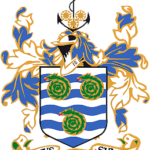
Whitby Town
Whitby Town Football Club is an English football club based in Whitby, North Yorkshire. The club participates in the Northern Premier League, the seventh tier of English football. Founded in 1880, Whitby are one of the oldest clubs from the North Riding of Yorkshire, the club has spent their entire history in the amateur and semi-professional leagues, though they have reached the second round of the FA Cup in both 1983–84 and 1985–86.
The level which the club are at now is the highest they have been throughout their history, rising up from the lower sections of non-league footballduring the 1990s, winning the Northern Premier League First Division on the way as well as the Northern League Cup six times. However, the formation of the Conference North/South Leagues at step 2 in the non-League pyramid effectively relegated Town back to step 3. Whitby most prestigious honour is arguably the FA Vase, which they won in 1996–97 after defeating North Ferriby United at Wembley Stadium.
Whitby play their home games at the 3,500 capacity Turnbull Ground on Upgang Lane. The club’s colours are somewhat distinct in English footballand are intentionally similar to Italian side Sampdoria[1] wearing a blue shirt with a touch of white, black and red.
Credit: Wikipedia.com
